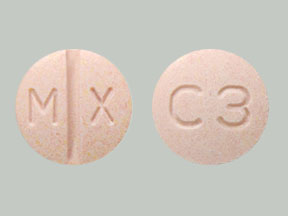
Atacand Hct Coupons & Savings Card – Discount Prices from $98.89
Brand for: Candesartan-hydrochlorothiazide
My prescription
Edit
32-25MG, Candesartan-hydrochlorothiazide (90 Tablets)
Select pharmacy

CVS
$98.89
COUPON PRICE
Walgreens
$107.91
COUPON PRICE
Albertsons
$120.77
COUPON PRICE
Walmart
$168.90
COUPON PRICEAtacand Hct savings card
Show this card to your pharmacist
CVS
$98.89
BIN
ID
PCN
GRP
011867
LHDE53A467
HT
LABH001
Powered by
More prescriptions for hypertension
More prescriptions for hypertension
Price history for Atacand Hct (brand) & Candesartan-hydrochlorothiazide (generic)
90 Tablets, 16-12.5MG
Average retail price for Atacand Hct
Average retail price for Candesartan-hydrochlorothiazide
Average SaveHealth price for Candesartan-hydrochlorothiazide
Our price history data is based on aggregated prescription data collected from participating pharmacies in America. Our prescription data updates daily to reflect the latest price changes. If you notice a missing data point, it means there wasn't sufficient data available to generate a monetary value for that date.
Over the last 12 months, the average discount price of Atacand Hct is $95.27 using the SaveHealth savings card. That's an average savings of 92.79% on Atacand Hct with our discount card.
*Retail prices are based on pharmacy claims data, and may not be accurate when we don't have enough claims.
Atacand Hct (Candesartan-hydrochlorothiazide) dosage forms
Dosage Quantity Price from Per unit 16-12.5MG 15 Tablets $21.56 $1.44 16-12.5MG 30 Tablets $34.11 $1.14 16-12.5MG 60 Tablets $55.00 $0.92 16-12.5MG 90 Tablets $81.34 $0.90 16-12.5MG 180 Tablets $136.39 $0.76 32-25MG 90 Tablets $99.31 $1.10 32-25MG 5 Tablets $11.38 $2.28 32-25MG 30 Tablets $38.97 $1.30 32-25MG 34 Tablets $42.97 $1.26 32-25MG 60 Tablets $66.97 $1.12
| Dosage | Quantity | Price from | Per unit |
|---|---|---|---|
| 16-12.5MG | 15 Tablets | $21.56 | $1.44 |
| 16-12.5MG | 30 Tablets | $34.11 | $1.14 |
| 16-12.5MG | 60 Tablets | $55.00 | $0.92 |
| 16-12.5MG | 90 Tablets | $81.34 | $0.90 |
| 16-12.5MG | 180 Tablets | $136.39 | $0.76 |
| 32-25MG | 90 Tablets | $99.31 | $1.10 |
| 32-25MG | 5 Tablets | $11.38 | $2.28 |
| 32-25MG | 30 Tablets | $38.97 | $1.30 |
| 32-25MG | 34 Tablets | $42.97 | $1.26 |
| 32-25MG | 60 Tablets | $66.97 | $1.12 |
| 32-12.5MG | 10 Tablets | $17.29 | $1.73 |
| 32-12.5MG | 30 Tablets | $36.65 | $1.22 |
| 32-12.5MG | 45 Tablets | $45.82 | $1.02 |
| 32-12.5MG | 60 Tablets | $55.00 | $0.92 |
| 32-12.5MG | 90 Tablets | $81.34 | $0.90 |
What is atacand HCT used for?
Atacand HCT is used to treat high blood pressure (hypertension). It combines two medications, candesartan and hydrochlorothiazide, to help lower blood pressure and reduce the risk of complications such as stroke and heart attack.
Using the SaveHealth discount card, what is the price of Atacand Hct without insurance?
Using the SaveHealth discount card, the price of Atacand Hct without insurance is $98.89.
What is the price of Atacand Hct at CVS?
The price of Atacand Hct at CVS is $98.89.
What is the price of Atacand Hct at Walgreens?
The price of Atacand Hct at Walgreens is $107.91.
What is the price of Atacand Hct at Walmart?
The price of Atacand Hct at Walmart is $168.90.
